INTERACTIVITY IN PANDEMIC TIME
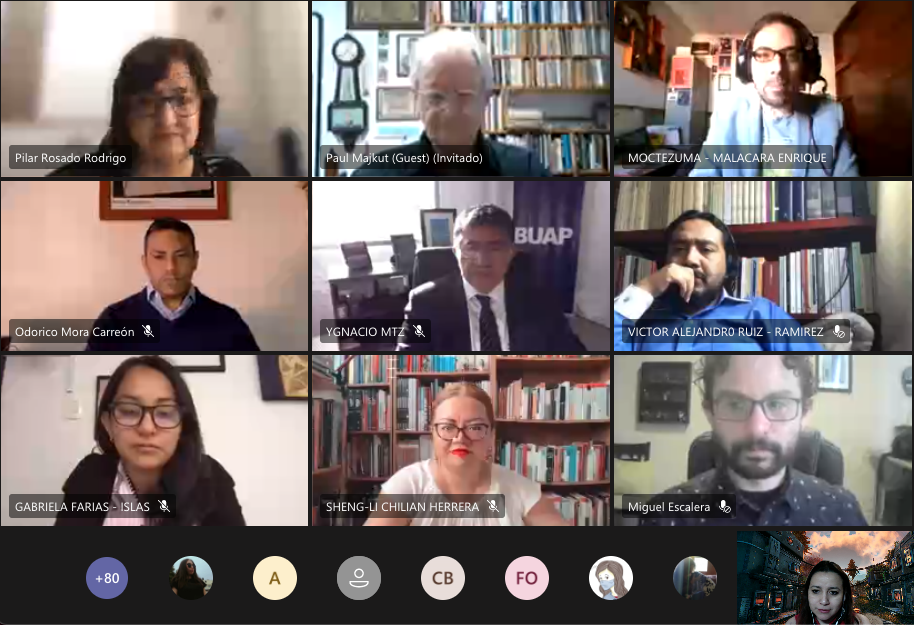
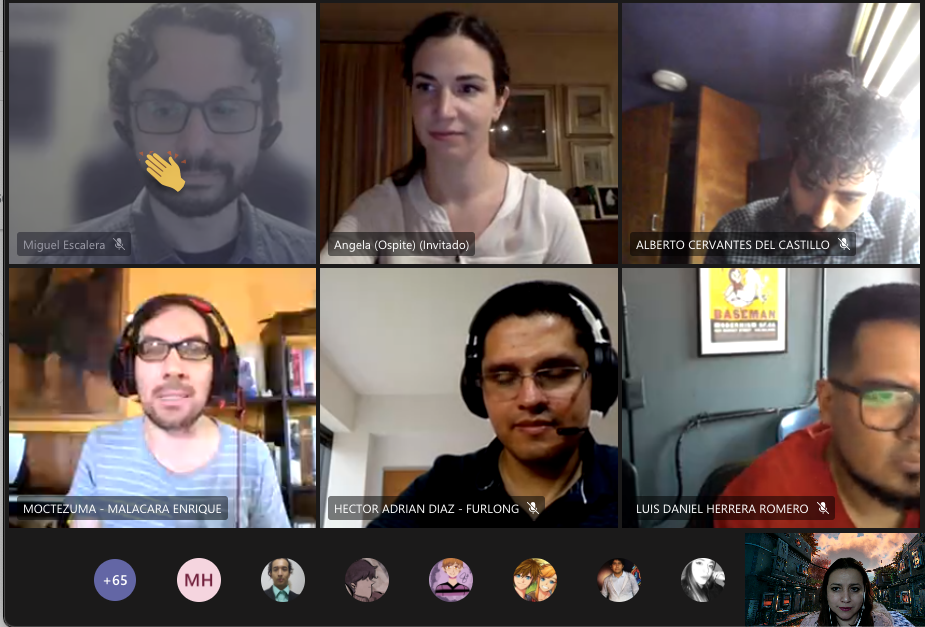
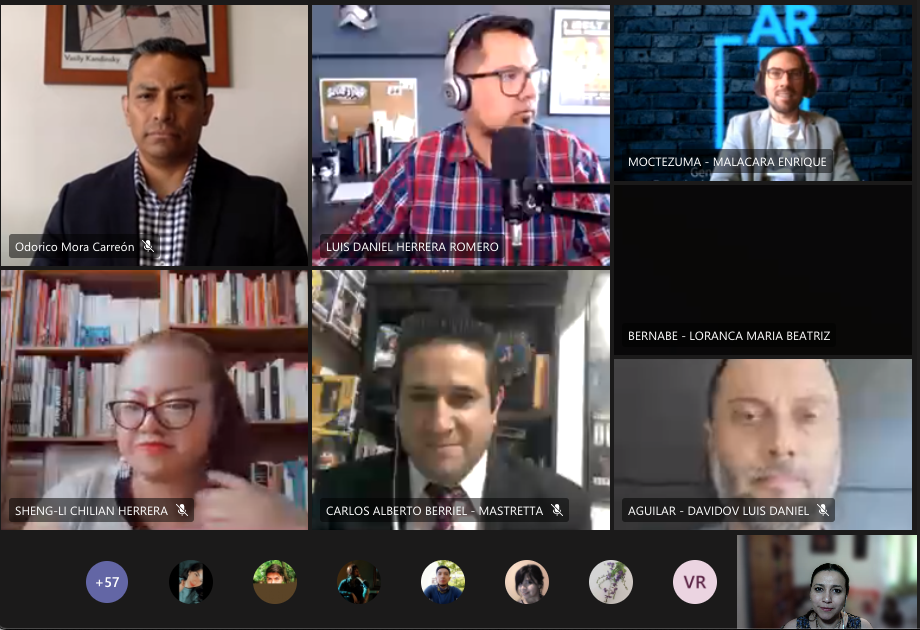
14- 19 de marzo de 2020
Descripción:
A lo largo de 4 años, las semanas de los medios de La Escuela de Artes Plásticas y Audiovisuales de la BUAP se han convertido en un espacio transdisciplinar de discusión sobre los medios y su impacto en lo individual y social. En cada versión se busca el acercamiento de investigadores, profesionales y estudiantes sobre este tema en un entorno internacional.
Este año, la semana de los medios, se realizará en línea debido a las condiciones actuales de distanciamiento y es precisamente el contexto de la pandemia el que guiará la discusión con el tema “Interactividad, en tiempos de la pandemia”. La interactividad que se trata se refiere a la relación de intercambio de información (diálogo) entre maquina y usuario. La tecnología y en el contexto actual evidencia que la interactividad se vuelve indispensable para entender relación mediada, por tecnología interactiva, entre personas distanciadas físicamente.
Description:
Over 4 years, the media weeks of the Escuela de Artes Plásticas y Audiovisuales BUAP have become a transdisciplinary space for discussion about the media and its impact on the individual and social. In each version the approach of researchers, professionals and students on this subject in an international environment is sought.
This year, the media week, will be held online due to the current distancing conditions and it is precisely the context of the pandemic that will guide the discussion with the topic “Interactivity, in times of the pandemic.” The interactivity in question refers to the information exchange relationship (dialogue) between the machine and the user. Technology and in the current context show that interactivity becomes essential to understand the relationship mediated, by interactive technology, between physically distanced people.
Programa

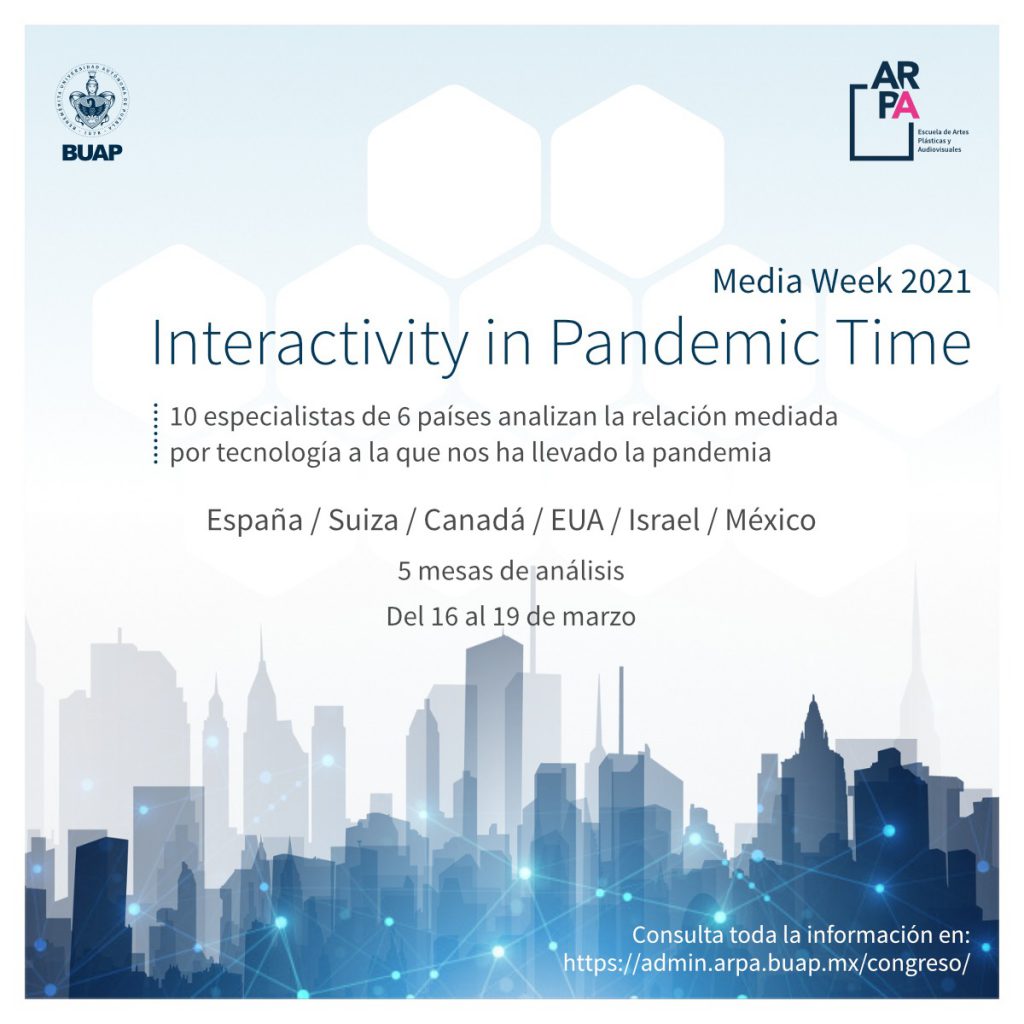

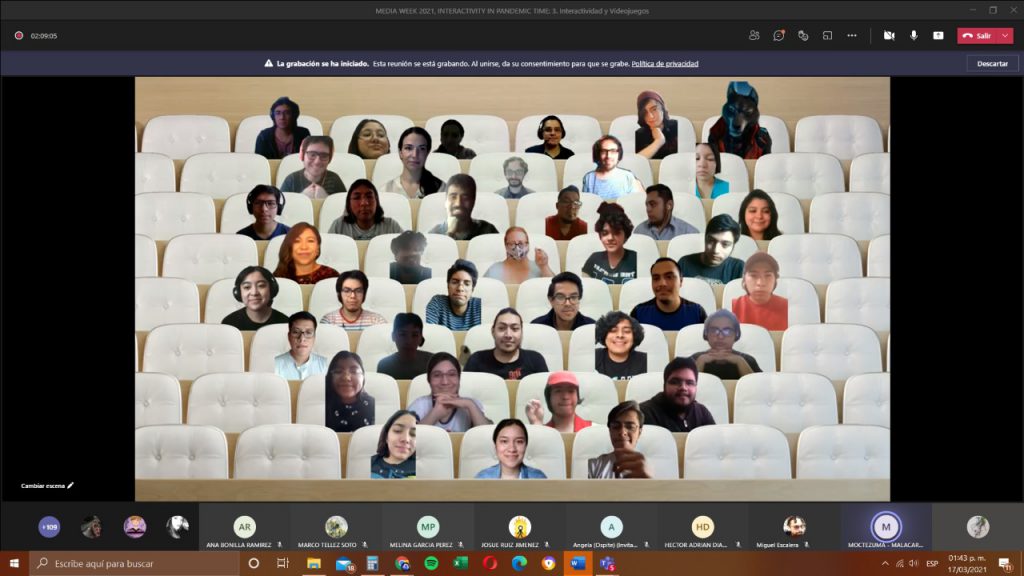

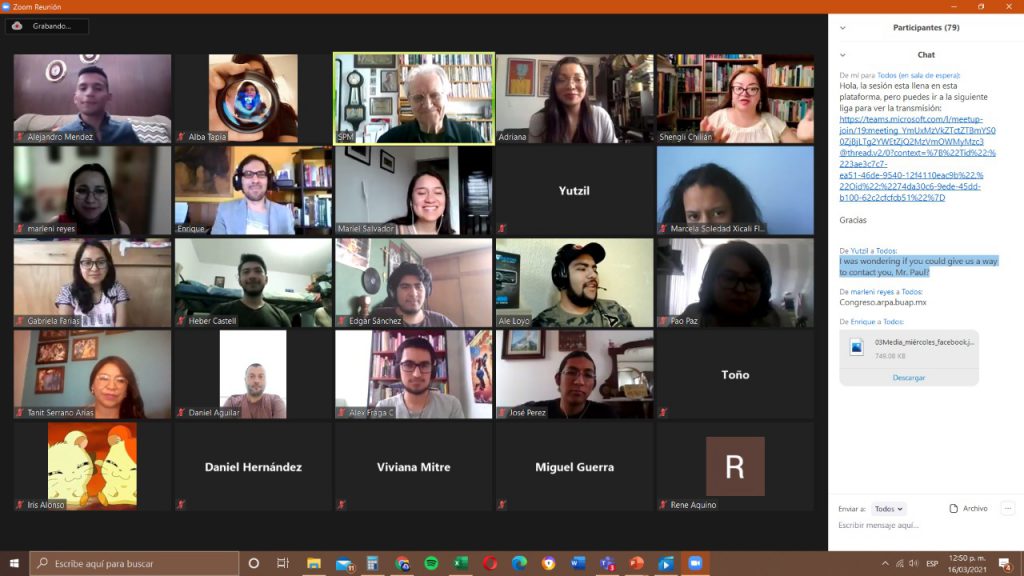
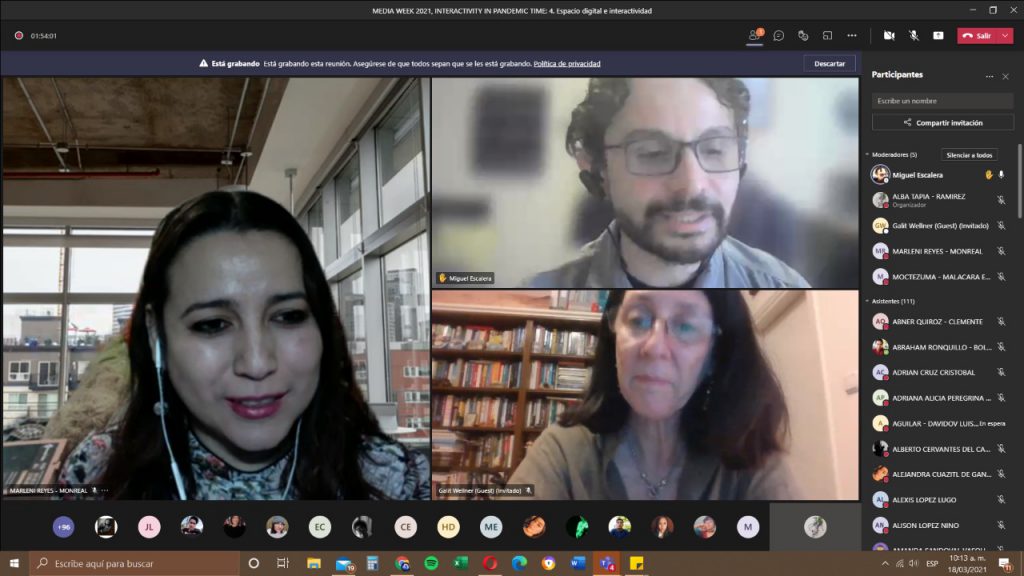
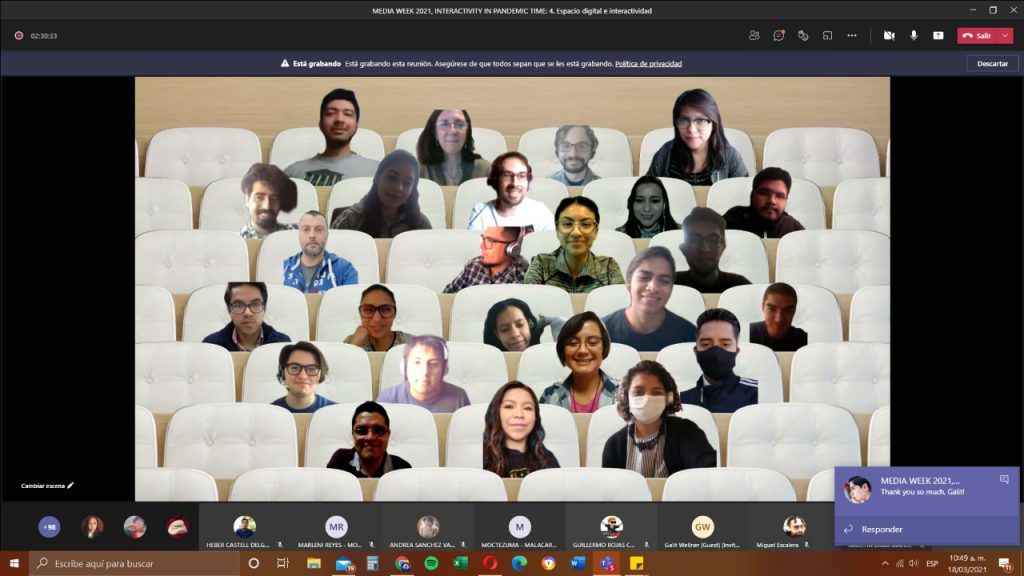
Maestro de ceremonias: Enrique Moctezuma
Martes 16/03/21 8:00 hrs GMT- 6
Inauguración
El mundo digital y el arte
Martes 16/03/21 8:15 hrs GMT- 6
Artistas y algoritmos aliados en la invención de imágenes
Pilar Rosado
Virtual transgretions on the contemporary landscape
Gabriela Farías Islas
Modera: Gabriela Farías
Inteligencia artificial y distanciamiento social
Martes 16/03/21 11:00 hrs GMT-6
Digital Zombies, Digital Zoombies: Interactivity and Intersubjectivity
Paul Majkut
Reflecting on Power and AI: The Case of GPT-3
James Steinhoff
Modera: Adriana Durán
Interactividad y Videojuegos
Miércoles 17/03/21 12:00 hrs GMT-6
Design and evaluation of a video game based cognitive training of reading skills
Angela Pasqualotto
Physical Interface: How game controllers shape experiences
Héctor A. Díaz Furlong.
Modera: Miguel F. Pérez Escalera
Espacio digital e interactividad
Jueves 18/03/21 9:00 hrs GMT-6
Museums and Technologies in Times of Corona
Galit Wellner
In pursuit of emphatically digital relations through expression in virtual reality
Miguel F. Pérez Escalera
Modera: Marleni Reyes
Redes sociales y Medios digitales
Viernes 19/03/21 11:00 hrs GMT-6
Acceso a la información de bases de datos masivas: importancia de su uso durante la pandemia
María Beatriz Bernabé Loranca
La resignificación como efecto de la fase digital de la electricidad
Carlos Alberto Berriel Mastreta
Modera: Daniel Herrera
Invitados
Pilar Rosado
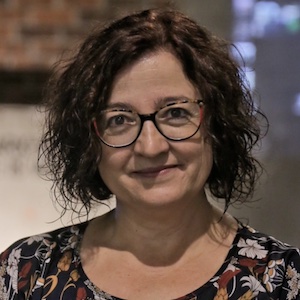
Pilar Rosado es una artista e investigadora cuya práctica explora el uso de algoritmos de aprendizaje automático en el ámbito de la creación. Trabajando con grandes colecciones de imágenes de archivo y estas nuevas tecnologías pretende proporcionar puntos de vista alternativos para la reflexión y que cuestionen las convenciones de nuestra mirada. Doctora en Bellas Artes y Licenciada en Biología, combina su carrera artística con la investigación y la docencia como profesora en la Facultad de Bellas Artes de la Universidad de Barcelona, siendo miembro de varios proyectos de I+D. ORCID: https://orcid.org/0000-0001-7142-5047
Paul Majkut

Paul Majkut, Ph.D., C. Phil., is a Fulbright Senior Specialist. He has served as a Fulbright Scholar at universities in Argentina and as a Fulbright Senior Specialist in universities in Finland, Germany, Mexico, and, when COVID permits, in Estonia. He has twice been a National Endowment for the Humanities Scholar (Oxford, Cambridge), and is a Reader of Medieval Manuscripts and Rare Books at the Oxford Bodleian Library, the Cambridge University Library, and the Huntington Library. His doctoral theses were on the history and theory of the speaking picture, a phenomenology of deception, and utopian-dystopian literature and theory. From 1989 to 2002, he was an award-winning journalist (Los Angeles Press Club, Southern California Press Club, San Diego Press Club, National Conference of Christians and Jews, and Coalition of African Organizations). Since 2000, his teaching had been primarily at the graduate level, including specialized courses in film and media studies (silent film, neorealism, film noir, film theory, media theory), medieval and Renaissance literature and American literature (primarily Chaucer and Shakespeare, literary theory, metafiction, Walt Whitman, Emily Dckinson), and philosophy (ethics, political philosophy, aesthetics, Husserlian phenomenology, and Marxism).
Angela Pasqualotto

Angela Pasqualotto is a clinical psychologist, and she obtained her PhD in Cognitive Science at the University of Trento (IT). She is now a post-doc at the Bavelierlab (University of Geneva, CH) where she is interested in the psychological and cognitive aspects of the interaction between children and technology, with an emphasis on the design and the evaluation of innovative tools for students with special educational needs.
Héctor Adrián Díaz Furlong

Ingeniero y maestro con mención honorifica en ciencias de la computación por la UNAM, especializado en programación de videojuegos y animación 3D. A nivel internacional ha participado en festivales, ponencias y publicaciones.
James Steinhoff

James is a postdoctoral fellow at the eScience Institute where he is working on an ongoing study of data science practice and culture with Anissa Tanweer. He is co-author of Inhuman Power: Artificial Intelligence and the Future of Capitalism (2019, Pluto Press). His research focuses on the political economy of the emergent artificial intelligence (AI) industry. He is interested in seeing how capital/labour relations in this industry present both continuities and differences from previous industries. He uses the AI industry as a case study to test the validity of theories of digital capitalism. In particular, he is interested in applying (and updating) the Labour Process Theory framework to analyze the production of AI and its automation with technologies such as automated machine learning (AutoML). He is currently preparing a monograph on the topic for Palgrave Macmillan. His next project will be a critical history of the diverse types of automation.
Gabriela Farías Islas

Artista plástico y Maestra en artes por la Universidad de Guanajuato. Su trabajo se ha expuesto en muestras colectivas e individuales a nivel nacional e internacional. Ha participado en foros como el Festival Internacional Cervantino, la Bienal de Puebla y MIFA Moscú. Así mismo, ha contado con el apoyo del Fondo estatal para la cultura y las artes de Guanajuato. Por otra parte, ha publicado artículos sobre arte contemporáneo y estética de la imagen en diversas revistas nacionales e internacionales.
Galit Wellner
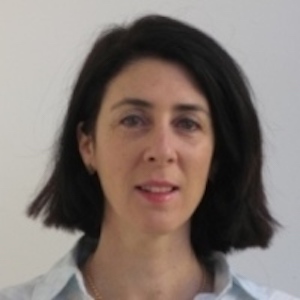
Galit Wellner currently works at Tel Aviv University and the NB School of Design. Galit studies digital technologies with the tools of Philosophy of Technology, especially postphenomenology.
Miguel Felipe Pérez Escalera

Puritano de la ciencias de la computación. Maestro en ciencias y actual doctorando en la Universidad de las Américas Puebla. Desarrollador de software empresarial a nivel profesional por más de 10 años y de videojuegos. Experto en lenguajes de programación y modelado. Gamer apasionado y admirador del todo lo 3D digital.
Carlos Berriel
Maestría en Administración Pública.
Coordinador de la licenciatura en mercadotecnia y medios digitales. Amante de las tecnologías digitales, de formación humanística, proactivo, alegre y conciliador.
María Beatriz Bernabé Loranca
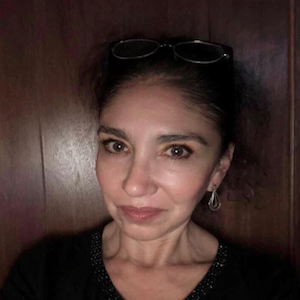
was born in the city of Puebla,Mexico. He received the B.S. degree in Computer Science from Benemérita Universidad Autónoma de Puebla (BUAP), Mexico in 1993 and the M.I. degree in quality engineering from Universidad Iberoamericana (UIA), Mexico in 2003. In January 2010, she received the Doctorate degree in Operations Research from the Universidad NacionalAutónoma de México (UNAM.). Since 1995, she has been a professor at the School of Computer Science of BUAP, where she works in databases and statistics. She belongs to the National System of Researchers with Level Candidate (SNI). Her research interests are: combinatorial optimization, territorial design and multiobjective techniques.
Relatores
Adriana Durán
Miguel Escalera
Marleni Reyes
Daniel Herrera
Enrique Moctezuma
Un evento de colaboración entre los Cuerpos Académicos a) La estética y los medios, b) Artes, medios y narrativas multi e interdisciplinarias






